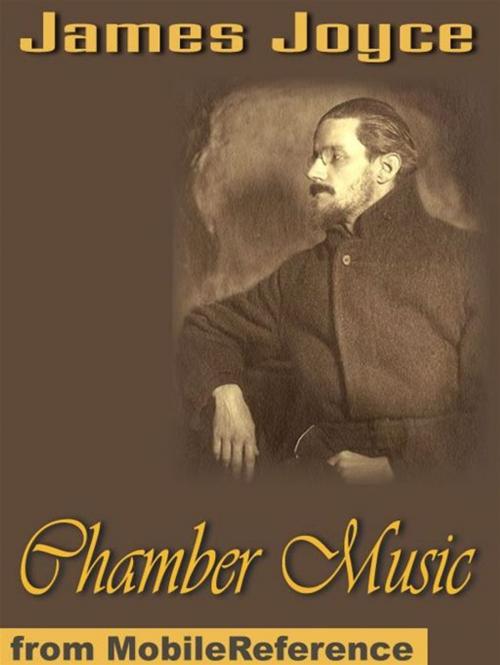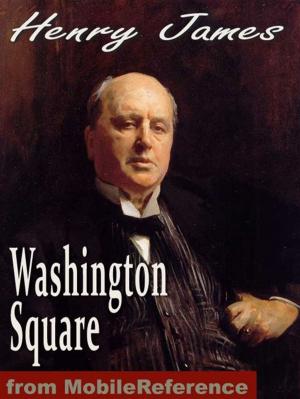| Author: | James Joyce | ISBN: | 9781605013978 |
| Publisher: | MobileReference | Publication: | January 1, 2010 |
| Imprint: | MobileReference | Language: | English |
| Author: | James Joyce |
| ISBN: | 9781605013978 |
| Publisher: | MobileReference |
| Publication: | January 1, 2010 |
| Imprint: | MobileReference |
| Language: | English |
A collection of poems by James Joyce, published by Elkin Matthews in May, 1907. The collection originally comprised thirty-four love poems, but two further poems were added before publication ("All day I hear the noise of waters" and "I hear an army charging upon the land").Although it is widely reported that the title refers to the sound of urine tinkling in a chamber pot, this is a later Joycean embellishment, lending an earthiness to a title first suggested by his brother Stanislaus and which Joyce (by the time of publication) had come to dislike: "The reason I dislike Chamber Music as a title is that it is too complacent," he admitted to Arthur Symons in 1906. "I should prefer a title which repudiated the book without altogether disparaging it."Ellmann reports (from a 1949 conversation with Eva Joyce) that the chamberpot connotation has its origin in a visit he made, accompanied by Oliver Gogarty, to a young widow named Jenny in May 1904. The three of them drank porter while Joyce read manuscript versions of the poems aloud - and, at one point, Jenny retreated behind a screen to make use of a chamber pot. Gogarty commented, "There's a critic for you!". When Joyce later told this story to Stanislaus, his brother agreed that it was a "favourable omen".-- Excerpted from Wikipedia, the free encyclopedia.
A collection of poems by James Joyce, published by Elkin Matthews in May, 1907. The collection originally comprised thirty-four love poems, but two further poems were added before publication ("All day I hear the noise of waters" and "I hear an army charging upon the land").Although it is widely reported that the title refers to the sound of urine tinkling in a chamber pot, this is a later Joycean embellishment, lending an earthiness to a title first suggested by his brother Stanislaus and which Joyce (by the time of publication) had come to dislike: "The reason I dislike Chamber Music as a title is that it is too complacent," he admitted to Arthur Symons in 1906. "I should prefer a title which repudiated the book without altogether disparaging it."Ellmann reports (from a 1949 conversation with Eva Joyce) that the chamberpot connotation has its origin in a visit he made, accompanied by Oliver Gogarty, to a young widow named Jenny in May 1904. The three of them drank porter while Joyce read manuscript versions of the poems aloud - and, at one point, Jenny retreated behind a screen to make use of a chamber pot. Gogarty commented, "There's a critic for you!". When Joyce later told this story to Stanislaus, his brother agreed that it was a "favourable omen".-- Excerpted from Wikipedia, the free encyclopedia.















